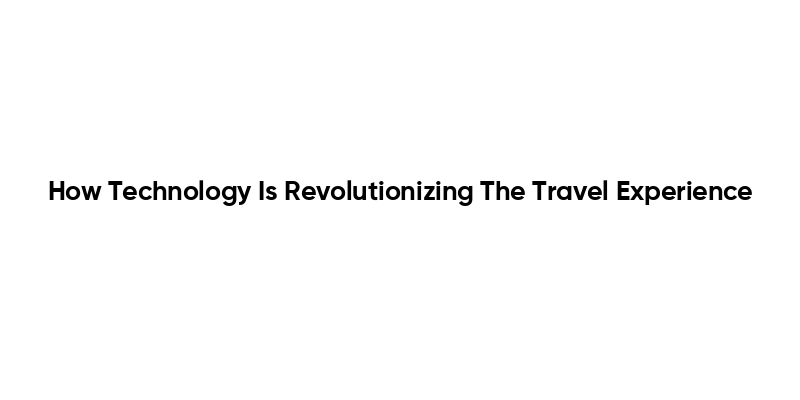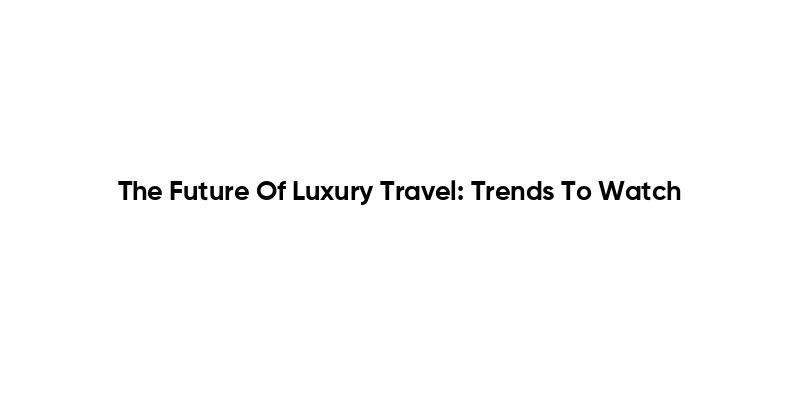Euro 2025 women’s soccer is set to create waves in the world of sports as it brings thrilling competition and a significant influx of tourism to Switzerland. This prestigious women’s soccer tournament is already showcasing impressive metrics, with a staggering 12% increase in visitors and a remarkable 27% boost in spending reported during its inaugural week. As interest in women’s soccer continues to surge, ticket sales have skyrocketed, with advanced sales surpassing 600,000, indicating a robust international draw. Fans from various countries, including Germany, England, and the US, are eager to witness this landmark event, fueling expectations for Euro 2025 tourism. With Swiss cities like Basel, Bern, and Zurich hosting matches, the tournament not only enhances the visibility of women’s sports but also transforms economic landscapes and revitalizes local businesses.
The upcoming Euro 2025 in women’s football heralds a major sporting event that promises to capture the attention of soccer enthusiasts and casual fans alike. This highly anticipated tournament is expected to significantly enhance tourism revenues in Switzerland, as international trips surge during the competition. With advanced ticket sales already reaching record figures, the excitement surrounding this women’s soccer championship is palpable. As fans flock to host cities – from vibrant urban centers to picturesque locales – the event stands to boost local economies while promoting the rising visibility of women’s sports on a global scale. Emphasizing the game’s growth, Euro 2025 serves as a pivotal moment in showcasing the talents of female athletes and the impact of women’s soccer on the world stage.
The Economic Impact of Euro 2025 on Swiss Tourism
The Euro 2025 women’s soccer tournament has created a remarkable boost for tourism in Switzerland, reflected in a significant 12% increase in visitors during its opening week. This influx includes a diverse array of sports enthusiasts from countries across Europe and beyond, eager to witness the exhilarating matches. As more fans travel to Switzerland, local businesses benefit from increased spending, particularly in hospitality and retail sectors. The overall economic effects of hosting such a prestigious tournament extend well beyond the stadiums, engaging every corner of the tourism industry.
Moreover, the financial ripple effect is evident in the impressive 27% rise in tourist spending, showcasing how major sports events can catalyze economic growth. With cities like Basel, Bern, and Zurich bustling with excitement, restaurants and entertainment venues have seen revenues soar. The surge in spending not only demonstrates the draw of women’s soccer but also highlights the transformative power of sporting events on local economies, encouraging more strategic investments into tourism infrastructure.
The Surge in Ticket Sales for Euro 2025
Euro 2025 has shattered previous records for ticket sales, with 600,000 tickets sold in advance and 22 out of 31 matches already sold out. This overwhelming demand illustrates the growing popularity of women’s soccer, as fans from various countries, including Germany, England, and the USA, show up in droves to support their teams. The increase in ticket sales not only showcases the tournament’s appeal but also signals a positive shift in public perception towards women’s sports, traditionally overshadowed by their male counterparts.
Additionally, the statistics reveal that approximately 35% of tickets have been purchased by international visitors. This influx not only fills stadiums but also enhances the international profile of women’s soccer. Such a high percentage of foreign attendees is an encouraging sign for the future of women’s soccer tournaments, suggesting that Euro 2025 could become a benchmark for subsequent events and expand on the existing momentum initiated by Euro 2022.
Women’s Soccer and its Growing Global Audience
The rise of women’s soccer on the world stage has been accompanied by an impressive increase in global viewership. Euro 2022 served as a pivotal moment, witnessing record television audiences and attendance figures that set new standards for women’s tournaments. With Euro 2025 on the horizon, expectations for viewership are even higher, as the legacy of prior tournaments continues to attract and engage a broader audience.
In conjunction with the general rise in interest, the cultural shift towards women’s sports has led to greater investment in broadcasting rights and viewer accessibility. As media coverage expands, the tournament not only entertains but also serves as a powerful platform for advocacy in the realm of gender equality and equal pay in sports, further enhancing the global appeal of women’s soccer.
International Representation at Euro 2025
Euro 2025 is set to showcase an unprecedented level of international representation, with over 114 nationalities expected to be present in the stands. This diversity reflects the growing inclusivity within women’s soccer and highlights the tournament’s role as a melting pot for fans worldwide. The engagement from an array of countries signifies not only the popularity of the sport but also the increasing recognition of women’s soccer as a crucial element of the global sports narrative.
The representation of international fans feeds into the ethos of unity and competition, elevating the tournament experience to new heights. Such a broad demographic participation helps to create a vibrant atmosphere, symbolizing the unifying power of sports, and offering a chance for cultural exchange among soccer enthusiasts across borders.
Impact of Visa Data on Women’s Soccer Insights
Recent Visa data offers invaluable insights into the economic impact and popularity of the women’s soccer tournament. By analyzing cardholder transactions during Euro 2025, Visa revealed a striking 12% increase in visitors to Switzerland, paired with a staggering 27% hike in overall spending among those attendees. This data emphasizes how international soccer events can serve as pivotal moments for local economies, making a strong case for continued investment in women’s sports.
Additionally, Visa’s findings underscore the importance of tracking financial trends within sports tourism. The increase in reported spending not only reflects immediate benefits from events like Euro 2025 but can also inform future planning and marketing strategies for host cities and countries. The insights gained from Visa data therefore play a crucial role in shaping how stakeholders approach the growing dynamics of women’s soccer and tourism.
Grassroots Movements Fueling Women’s Soccer Growth
The impressive surge in women’s soccer popularity can largely be attributed to grassroots initiatives that promote the sport at foundational levels. With dedicated investment in youth programs and local leagues, the growth of talent has been palpable over the past decade, culminating in widespread successes like Euro 2022 and the anticipated Euro 2025. Such grassroots movements empower female athletes and create pathways for future generations to engage in sports.
Furthermore, as these grassroots efforts continue to gain traction, they contribute to a more diverse and skilled athlete pool, ultimately enriching the competitive landscape of women’s soccer. The transition from community-level engagement to international platforms exemplifies how strong foundational movements can foster long-term growth and sustainability within women’s sports.
Euro 2025’s Role in Advancing Gender Equity in Sports
As Euro 2025 approaches, it also plays a crucial role in highlighting the ongoing movements toward gender equity within sports. The partnership between major organizations and stakeholders to push for equal treatment, pay, and sponsorship opportunities is more evident than ever. Events like Euro 2025 not only contribute to visibility but also spark conversations about equality and inclusivity in a traditionally male-dominated sector.
The recent equal pay agreement by US Soccer and significant broadcasting deals further illustrate the changing dynamics within the sports industry. The visibility and success of such tournaments serve as a catalyst for broader societal shifts, reinforcing the importance of supporting women’s sports and advocating for structural changes that ensure all athletes receive the recognition and resources they deserve.
The Future of Women’s Soccer Beyond Euro 2025
Looking beyond Euro 2025, the trajectory of women’s soccer appears promising as interest continues to grow globally. With significant investments in leagues, infrastructure, and broadcasting, there is an optimistic outlook for the future of the sport. In particular, UEFA’s commitment to expanding women’s soccer opportunities suggests that the momentum gained through Euro 2025 may lead to an even brighter future, filled with new fans and increased support for women’s teams.
Furthermore, the trends seen in ticket sales, international visitor statistics, and spending illustrate a vibrant future for the sport. As women’s soccer continues to gain a foothold in various markets, tournaments such as Euro 2025 will pave the way for upcoming generations of athletes and supporters alike, ensuring that women’s soccer becomes a mainstream part of the sports narrative worldwide.
Frequently Asked Questions
What impact is Euro 2025 women’s soccer expected to have on tourism in Switzerland?
The Euro 2025 women’s soccer tournament is projected to significantly boost tourism in Switzerland, with preliminary data showing a 12% increase in visitors during its opening week. This influx of sports fans is contributing to a 27% rise in spending across the country.
How have ticket sales for Euro 2025 women’s soccer compared to previous tournaments?
Advance ticket sales for Euro 2025 women’s soccer have already reached 600,000, with 22 out of 31 matches sold out. This early success indicates a growing interest in women’s soccer, outperforming previous events like Euro 2022.
Which countries are contributing to the increase in visitors for Euro 2025 women’s soccer?
For Euro 2025 women’s soccer, Germany, Poland, and the Netherlands have seen a 25% increase in visitors, while arrivals from the UK rose by 20%, and Italy and France experienced increases of 15% and 10%, respectively.
How does the increase in spending during Euro 2025 women’s soccer reflect on local businesses?
The spending surge during the first week of Euro 2025 women’s soccer indicates a positive impact on local businesses in host cities, with restaurant revenues nearly doubling in Bern and entertainment spending tripling in Thun.
What milestones has women’s soccer achieved leading up to Euro 2025?
Leading up to Euro 2025, women’s soccer has achieved significant milestones, including record ticket sales for prior tournaments, a notable equal pay agreement by US Soccer in 2022, and expanded broadcasting rights for leagues, indicating growing popularity and investment.
How does Euro 2025 women’s soccer compare to past tournaments in terms of international fan engagement?
Euro 2025 women’s soccer is marking unprecedented international fan engagement, with around 35% of ticket purchasers being from abroad, including fans from 114 different nationalities, which reflects a growing global interest in women’s soccer.
What economic benefits can be expected from Euro 2025 women’s soccer in Switzerland?
The economic benefits from Euro 2025 women’s soccer in Switzerland include increased tourism, a reported 27% rise in local spending, and an overall boost in the hospitality and retail sectors, showcasing the tournament’s potential to invigorate the economy.
How is the popularity of women’s soccer reflected in Euro 2025’s ticket sales?
The remarkable demand for Euro 2025 women’s soccer, evident in 600,000 advance ticket sales, highlights the sport’s rising popularity and its ability to attract a diverse audience compared to previous tournaments.
What lessons from Euro 2022 might influence Euro 2025 women’s soccer?
Euro 2025 women’s soccer organizers are applying lessons learned from Euro 2022, focusing on grassroots investment, increased media coverage, and fan engagement, which resulted in record attendance and viewership.
What role does Visa data play in understanding the impact of Euro 2025 women’s soccer?
Visa data provides critical insights into the financial impact of Euro 2025 women’s soccer, revealing visitor trends and spending behaviors that illuminate the tournament’s economic significance for Switzerland.
| Key Points |
|---|
| Euro 2025 women’s soccer tournament boosted tourism and spending in Switzerland. |
| Visitor numbers increased by 12% in the first week, according to Visa data. |
| Spending across Switzerland rose by 27%, with restaurant revenues in Bern nearly doubling. |
| 600,000 tickets sold in advance, with significant international attendance from various countries. |
| Euro 2022 set a precedent for attendance and viewership in women’s soccer, contributing to the growth seen in Euro 2025. |
| The tournament is expected to set new records with the participation of fans from 114 different nationalities. |
Summary
Euro 2025 women’s soccer is making a significant impact on tourism and economic growth in Switzerland. With a remarkable 12% rise in visitors and a 27% increase in spending during the first week of the tournament, it’s clear that this event is reshaping the landscape for women’s sports. The continued popularity and professionalization of women’s soccer are pivotal to this surge, as evidenced by record-breaking ticket sales and unprecedented international attendance. Euro 2025 not only showcases elite women’s soccer but also brings together diverse fans from around the globe, further solidifying its role in enhancing global recognition and investment in women’s sports.



